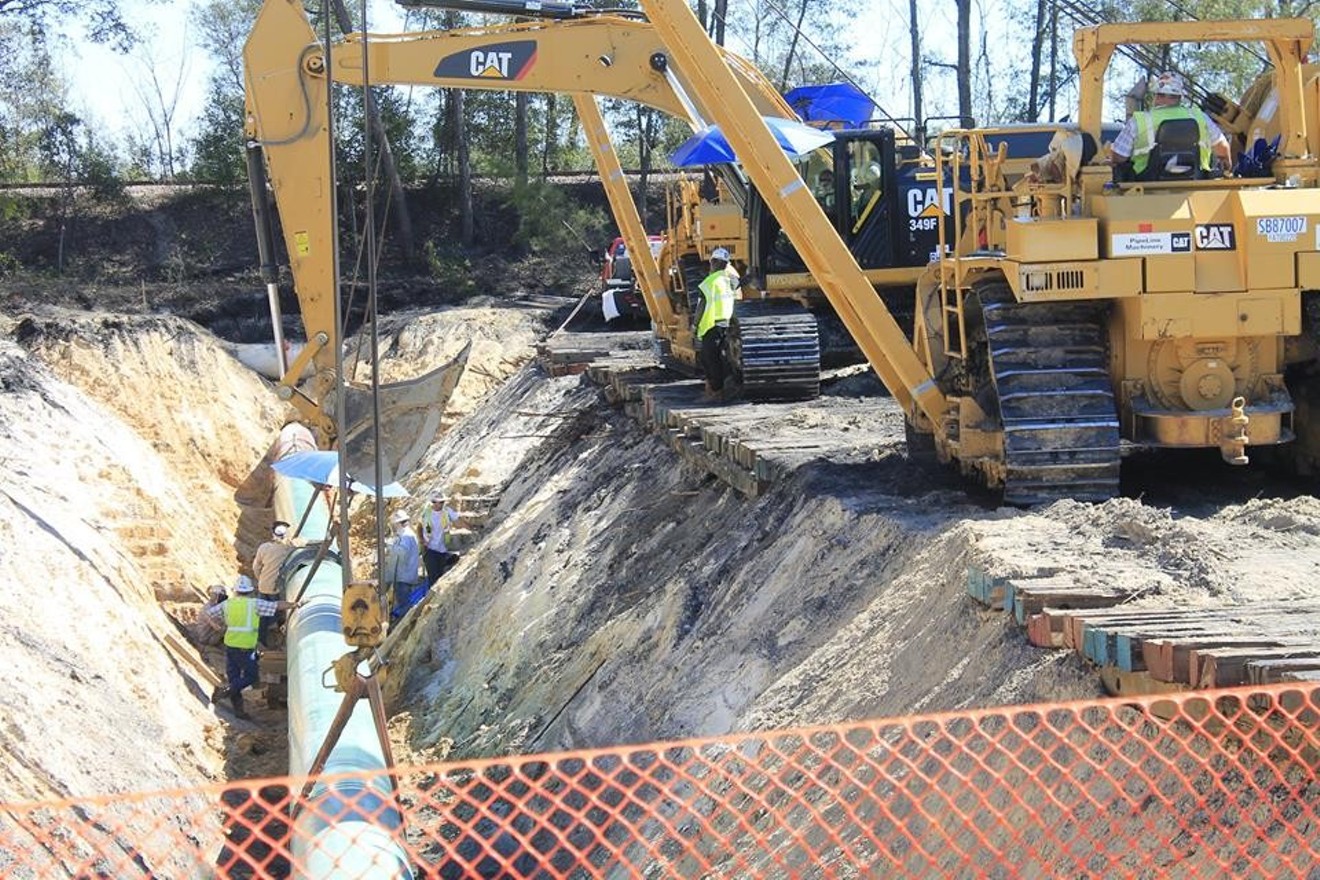The activists' chances of stopping the massive project
"This initial capacity is intended to provide service to Florida Power & Light to meet the start of its peak cooling season," Sabal Trail Pipeline spokesperson Andrea Grover confirmed in an email to New Times.
According to the Palm Beach Post, the pipeline has already been linked up with the 126-mile Florida Southeast Connection, which brings natural gas from Osceola County to FPL's plant in Indiantown. As of Wednesday, the pipeline will supply all of the natural gas at the Riviera Beach power plant in Palm Beach County and will soon do the same at other FPL plants in South and Central Florida.
Though it never quite garnered the same attention as the Dakota Access Pipeline, Sabal Trail has faced a steady stream of opposition since the project was approved in 2013. In addition to statewide protests, environmental heavyweights like the Sierra Club have also intervened. In September, the organization filed a lawsuit challenging the pipeline's construction, saying the project would damage ecosystems in Alabama, Georgia, and Florida and arguing that poor, minority communities would be disproportionally affected. Sierra Club lawyers made oral arguments in April, but a federal judge has yet to issue a ruling.
Merrillee Malwitz-Jipson of Sierra Club Florida says the group is encouraging residents and property owners to make them aware of any leaks or sinkholes associated with the pipeline.
"We have to move forward. You can't go back — the gas is already in the pipe," she says. "We're going to be watching, and we have lots of documentation on things we felt were wrongful in terms of construction. There are so many violations and noncompliances I can't even mention them all."
Despite the fact that the Sierra Club lawsuit is pending, the federal government issued an order Friday allowing Sabal Trail to begin service. Staff with the Federal Energy Regulatory Commission (FERC) say they trust the energy companies would properly clean up the construction sites and continue to monitor pipeline safety.
Environmental activists aren't giving up. There's still hope that the lawsuit will halt pipeline operations or at least force Sabal Trail to better address the impacts to local communities. Another group, the Waterkeeper Alliance, is asking Congress to reform FERC, saying the group has become far too friendly to the industry. And Malwitz-Jipson says concerned Floridians can still help the Sierra Club act as a watchdog.
"We will be encouraging any coastal communities to be aware and monitor for any LNG (liquefied natural gas) permitting," she says. "Sabal Trail eminent-












